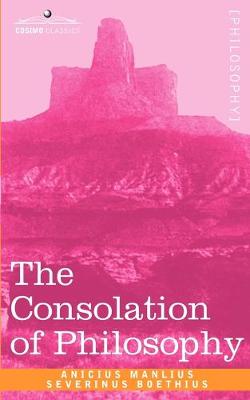Medieval & Renaissance Texts & Studies S.
1 total work
v. 200
An eminent public figure under the Gothic emperor Theodoric, Boethius was also an exceptional Greek scholar, and it was to the Greek philosophers that he turned when he fell from favor and was imprisoned in Pavia. Written in the period leading up to his brutal execution, The Consolation of Philosophy is a dialogue of alternating prose and verse between the ailing prisoner and his "nurse", Philosophy, whose instruction on the nature of fortune and happiness, good and evil, fate and free will, restore his health and bring him to enlightenment.
The clarity of Boethius's thought and his breadth of vision made this work hugely popular throughout medieval Europe, and his ideas suffused the thought of Chaucer and Dante. This translation makes it accessible to the modern reader while losing nothing of Boethius's poetic artistry and philosophical brilliance.
